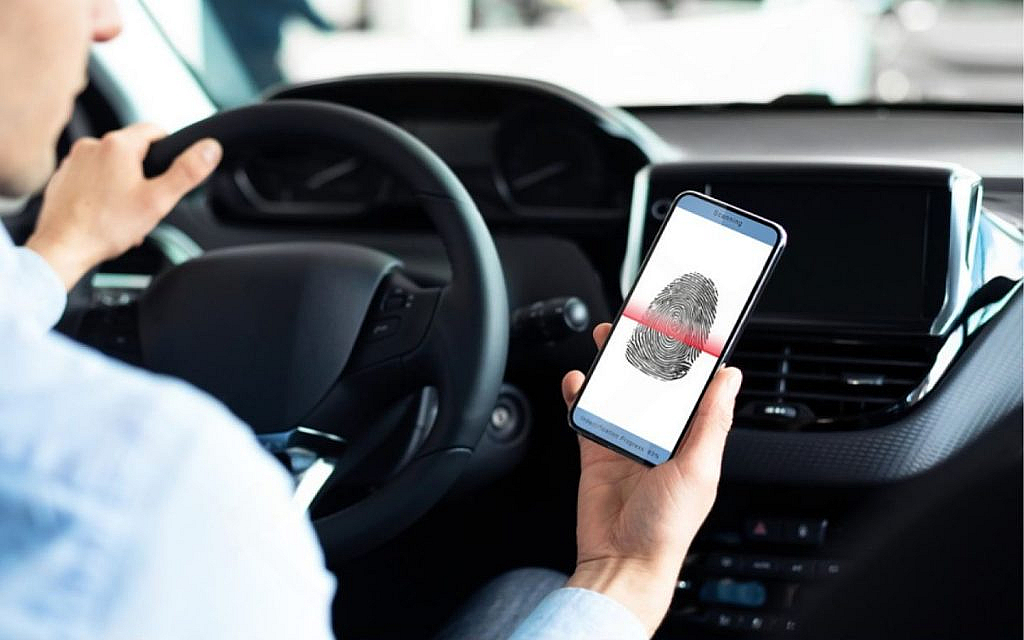How Biometrics Will Enhance Connected Car Experience
The automotive industry has rapidly adopted advanced technologies over the past few decades, with biometrics now taking centre stage. Once limited to basic authentication, biometrics has now expanded its applications with the rise of connected cars. From monitoring drivers’ health to reinforcing cybersecurity, biometrics in connected cars play a pivotal role in enhancing the overall driving experience.
Biometrics Enhancing Connected Car Experience
With the rise of connected cars powered by advanced AI systems, biometrics has become an essential feature. It shapes a driving experience defined by security, personalisation and intelligent interaction.
Improve Vehicle Security
Biometric car access features such as fingerprint scanners, facial recognition and voice authentication have strengthened vehicle security. Unlike conventional locks, the biometric entry systems are unique to each driver, making unauthorised entry far more difficult.
Beyond access control, biometrics is also integrated into anti-theft technologies in connected cars, such as engine immobilisers. Multi-factor authentication that combines methods like facial and fingerprint scans further strengthens protection, ensuring a higher standard of security.

Offer Tailored Driving Experience
Biometric identification linked to a specific driver integrates with the vehicle’s profile management system to retain individual preferences. Once authenticated, the system automatically configures settings such as seat position, climate control, mirror alignment and driving modes. By enabling biometric-based profile activation, connected cars ensure a consistently personalised driving experience.
Monitor Driver’s Health
Many connected cars are now equipped with biometric sensors capable of monitoring real-time health indicators such as heart rate, stress levels and fatigue. Facial recognition further enhances accuracy by identifying signs of drowsiness or medical distress.
In the event of a health emergency, these systems, like Mercedes-Benz Attention Assist, can automatically issue alerts or activate safety protocols to reduce the risk of accidents.
Enhance Connected Car Cybersecurity
With the growing adoption of connected cars, the risk of vehicle cybersecurity breaches has also intensified. The integration of wireless technologies such as cellular networks (4G/5G) and vehicle-to-everything (V2X) communication expands the vehicle’s attack surface, exposing it to threats including unauthorised remote access, data theft and others.

To counter these risks, manufacturers have taken multiple cybersecurity measures for connected cars, with biometrics playing a pivotal role. By linking access to a verified user, biometric authentication ensures only authorised individuals can interact with critical systems, significantly reducing the likelihood of cyberattacks.
Simplify Fleet Management
Biometrics in connected cars streamline fleet management by enabling precise access control and driver authentication. Vehicles can be securely tracked online, while integrated sensors and cameras provide real-time data and footage. This allows fleet managers to monitor driver behaviour effectively and address instances of reckless or unsafe driving, helping to lower accident risk and operational costs.
FAQs
How are biometrics transforming the customer experience?
Biometrics offers personalised journeys by adjusting in-car settings, enhancing security and enabling seamless interactions, making the driving experience more intuitive and tailored.
Can biometrics detect driver fatigue or intoxication?
Yes, biometric sensors can monitor indicators like eye movement, heart rate and stress levels to detect fatigue or impairment, issuing alerts or activating safety protocols.
What security measures protect biometric data in cars?
Automakers use encryption, secure storage and multi-factor authentication to protect biometric data, ensuring it remains private and inaccessible to unauthorised users.
This is how biometrics in connected cars enhance the overall driving experience. Alongside these advancements, connected cars also integrate advanced safety and driver-assist technologies powered by real-time data, enabling better management of emergencies. These innovations are not limited to new models; many used cars for sale in the UAE also come equipped with connected features, making them a practical option.
Besides biometrics, here are some other AI features in modern cars that buyers should look for.
Stay connected with dubizzle’s auto blog to learn about the pros and cons of sharing profiles among drivers.
Comments
Post a Comment